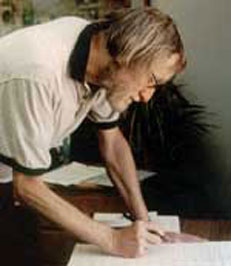Russell McCormmach, 2010 Pais Prize Winner

Russell K. McCormmach.
Professor McCormmach's work has had a profound influence in transforming the study of the history of physics from an activity of enthusiastic but untrained aficionados into an academic discipline worthy of a scholarly profession. That transformation required not only exemplary models of scholarship, but also the development of the infrastructure so necessary to scholarly discourse. Dr. McCormmach has been a key figure on both sides of the transformation.
Russell McCormmach was born in 1933 in Pendleton, Oregon. In 1959 he earned Bachelor's degrees from the Washington State University and Oxford University, and in 1967 the PhD from Case Western Reserve University. He has taught physics, mathematics, and the history of science at several institutions, including Washington State University, San Francisco State University, Princeton University, the University of Pennsylvania, Johns Hopkins University, and Whitman College. He served as an assistant editor of the Encyclopedia Britannica in the early 1960s.
Dr. McCormmach was the founding editor of the journal Historical Studies in the Physical Sciences, editing Volumes I-III, and co-editing of Volumes IV-X.
A monumental history of German physics was forthcoming from Professor McCormmach and his late wife, the writer Crista Jungnickel, in the two-volume Intellectual Masters of Nature: Theoretical Physics from Ohm to Einstein (University of Chicago Press, 1986). McCormmach and Jungnickel also brought Henry Cavendish out of relative obscurity and misunderstanding with Cavendish (American Philosophical Society, 1996) and Cavendish: The Experimental Life (Bucknell University Press, 1999). More recently, this was followed by McCormmach's Speculative Truth: Henry Cavendish, Natural Philosophy, and the Rise of Modern Theoretical Science (Oxford University Press, 2004).
McCormmach's well-known novel Night Thoughts of a Classical Physicist (Harvard University Press, 1982) takes the reader into the mind of a fictional professor, Victor Jakob, an elderly physics instructor at a small German university in 1918. The sense of what "revolution in physics" meant to those who lived through it comes to life as we participate in Professor Jakob's struggles to cope as the permanency of his cherished scientific principles come crashing down all around him.
In an interview with Contemporary Authors (1 January 2004), Professor McCormmach said "When I want to understand something, I invariably look to see how it came about in time, that is, I study it through its history…I study not only how science has changed in time but also how the rest of the world has changed with it…I use different approaches: I write history to depict the working relationships of large numbers of scientists, biography to deal with the experience of a particular scientist, and fiction to get at the meaning of science in individual lives." More about Professor McCormmach can be found at http://aps.org/units/fhp/awards/pais/index.cfm.
Note Added: This article represents the views of the author, which are not necessarily those of the FHP or APS.
